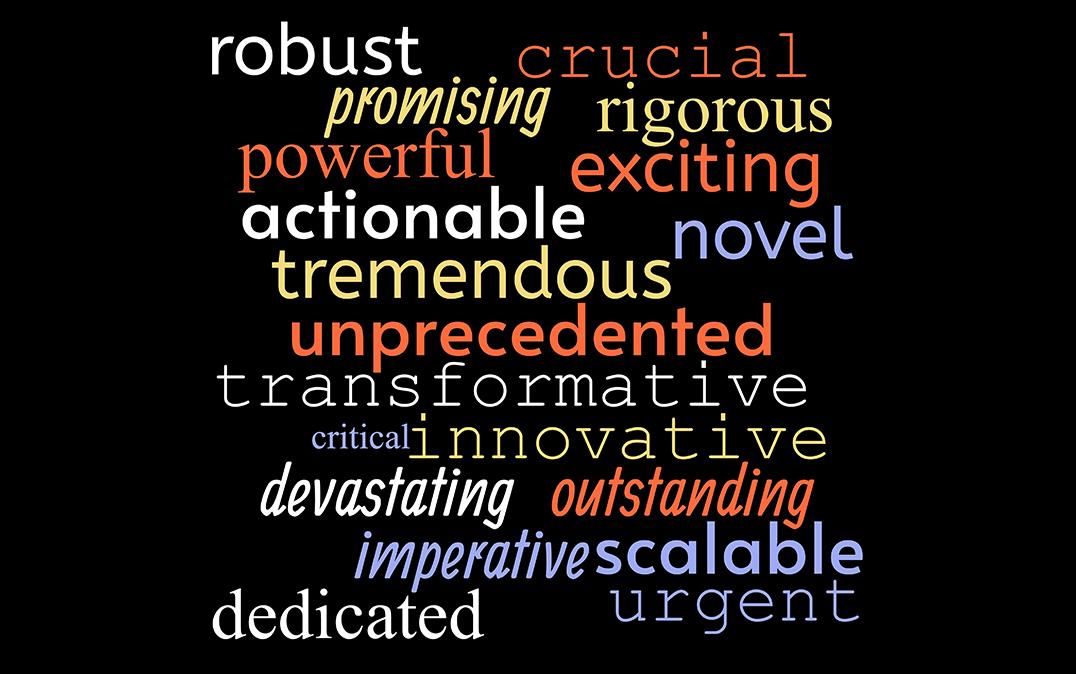Research News
Increasing Levels of "Hype" Language in Grant Applications and Publications

A research team led by the University of Tsukuba analyzed the use of "hype" in published abstracts describing the results of all projects funded by the US National Institutes of Health (NIH) from 1985 to 2020. The use of hype adjectives (e.g., novel, groundbreaking, exciting, rigorous, and so on) has consistently increased in correlation with the use of hype language in corresponding grant applications. The findings suggest that increasing salesmanship in research communication is (in part) a downstream effect of language choices made at the grant application stage.
Tsukuba, Japan—The success of scientific endeavors often depends on support from public research grants. Successful applicants increasingly describe their proposed research using promotional language ("hype"); however, it remains unclear whether they use hype in their subsequent research publications.
A research team led by the University of Tsukuba analyzed all published research abstracts of projects funded by the US National Institute of Health (NIH) from 1985 to 2020. The analysis covered 139 hype adjectives emphasizing significance (e.g., imperative, paramount), novelty (e.g., revolutionary, ground-breaking), scale (e.g., massive, vast), rigor (e. g., careful, sophisticated), utility (e.g., impactful, seamless), attitudes (e.g., incredible, exciting), and the gravity of problems (e.g., dire, devastating). A dramatic growth in almost all hype terms was found over the 36-year period. Furthermore, the usage trends of hype adjectives were closely correlated with the usage trends in NIH funding applications during the same period. This finding suggests that the language choices of investigators at the grant application stage affect the subsequent presentation of research findings.
The study indicates the role of funding mechanisms in shaping the tone of research communication. Recognizing the concerns surrounding increasing levels of hype, funding bodies are urged to not nudge investigators towards salesmanship.
###
This work was supported by JSPS KAKENHI (Grant number 21K02919)
Original Paper
- Title of original paper:
- Promotional language (hype) in abstracts of publications of NIH funded research
- Journal:
- JAMA Network Open
- DOI:
- 10.1001/jamanetworkopen.2023.48706
Correspondence
Associate Professor Neil Millar
Institute of Systems and Information Engineering, University of Tsukuba
Related Link
Institute of Systems and Information Engineering


